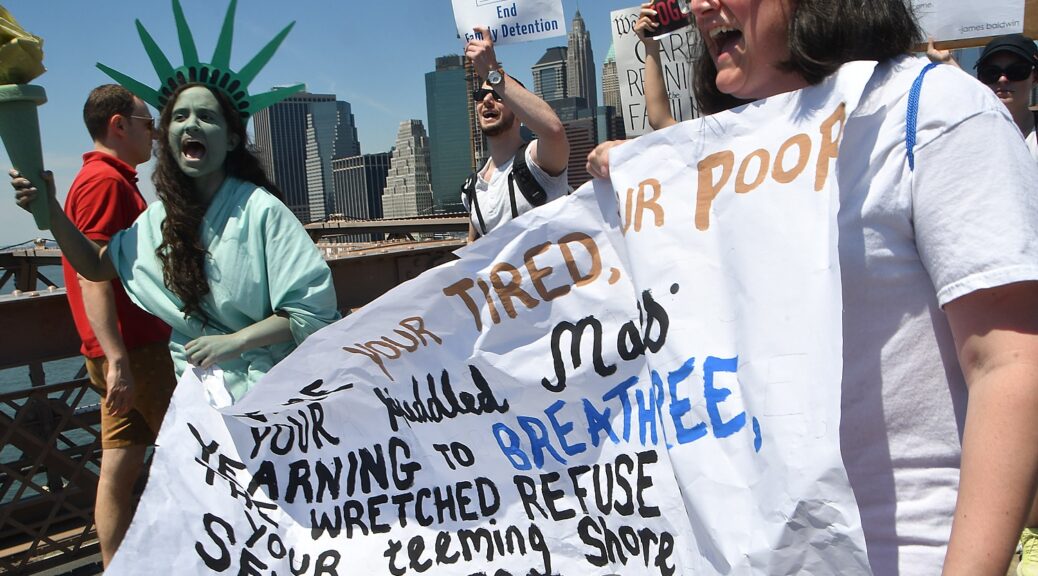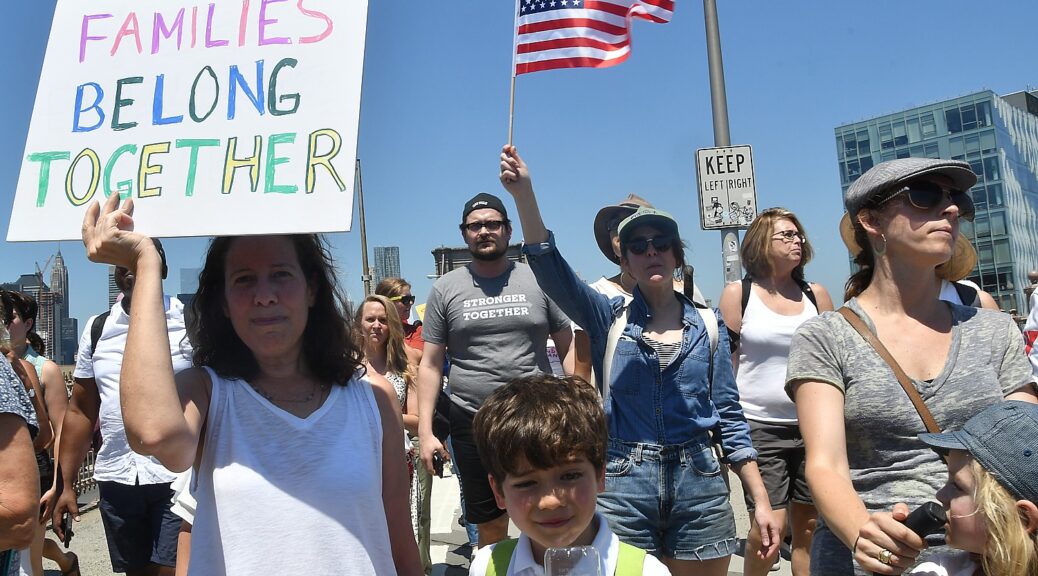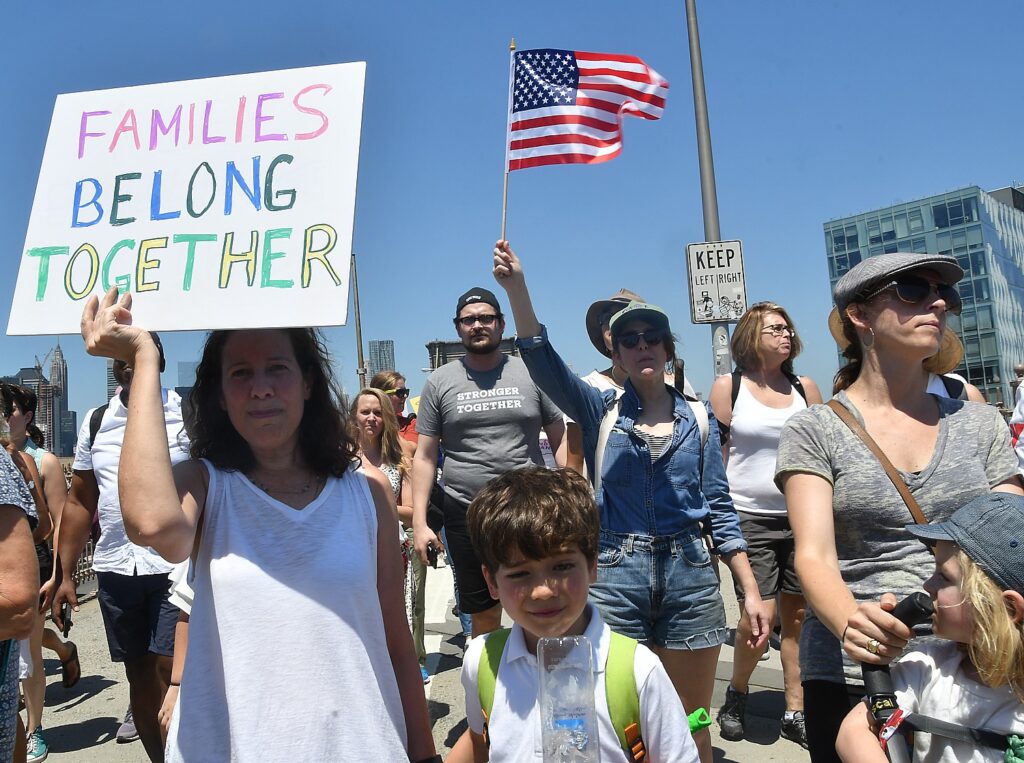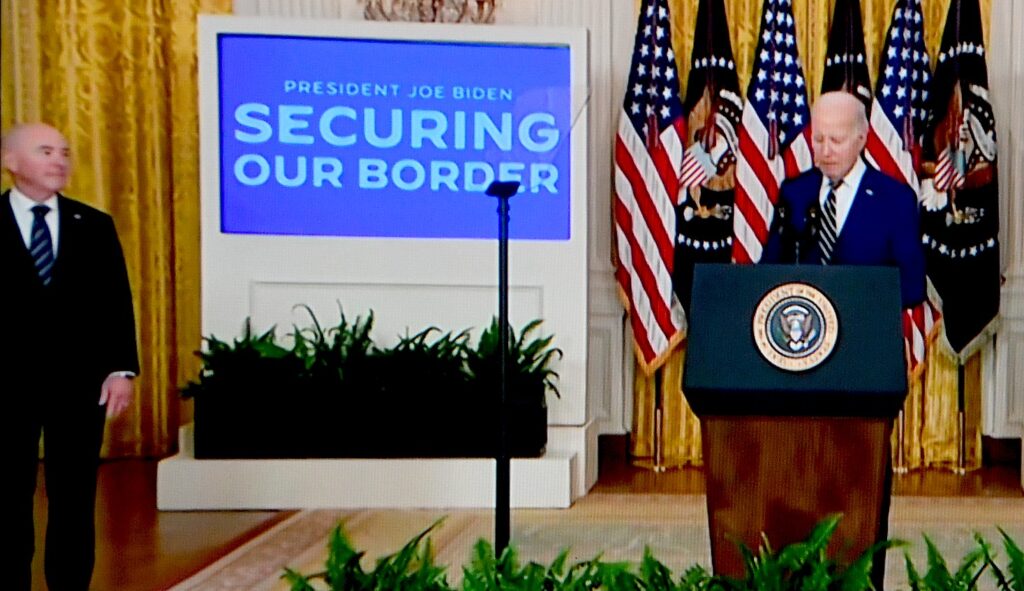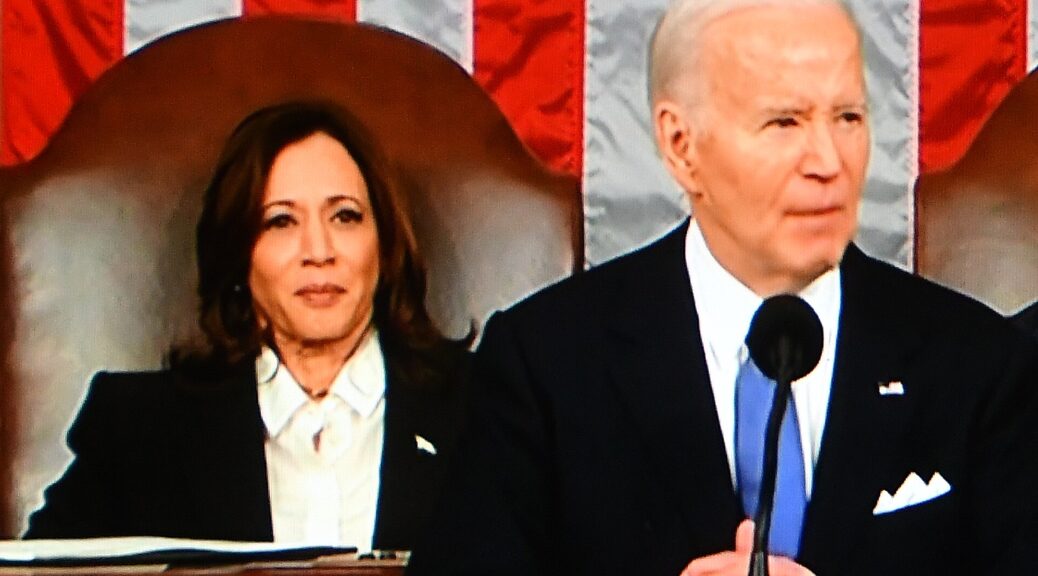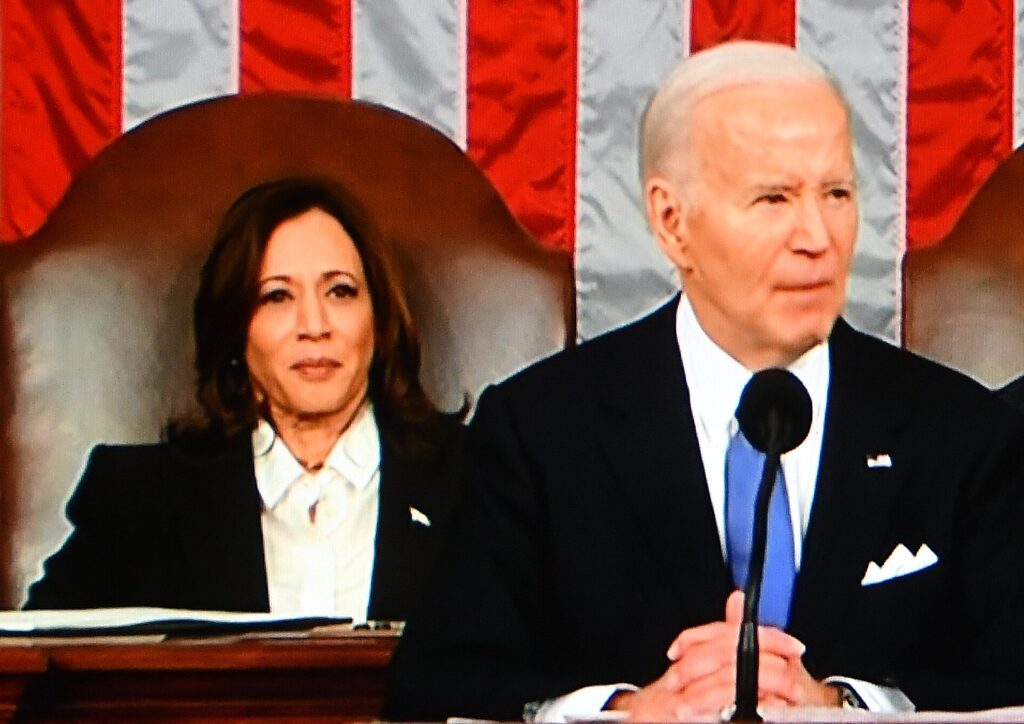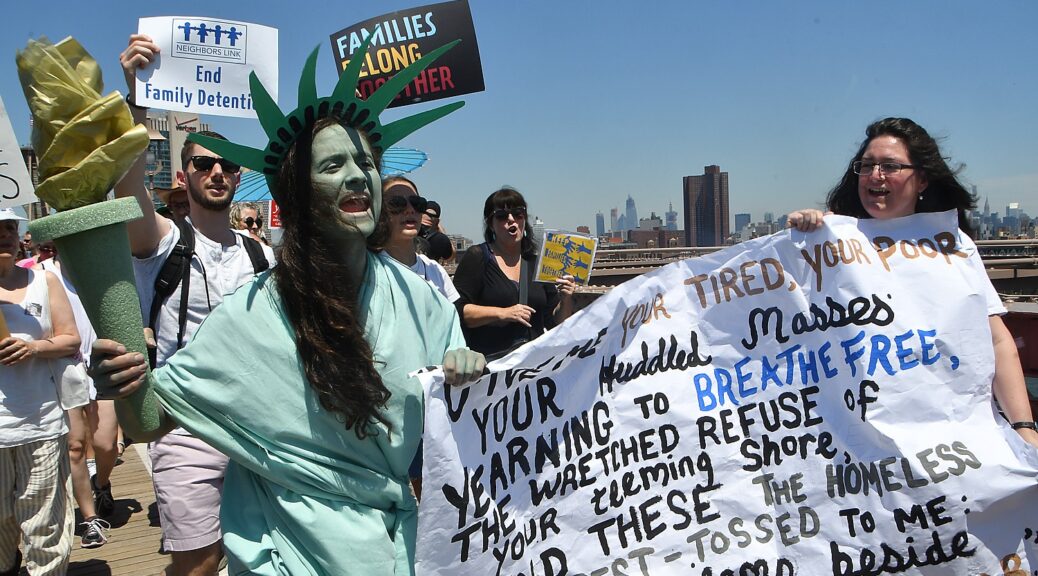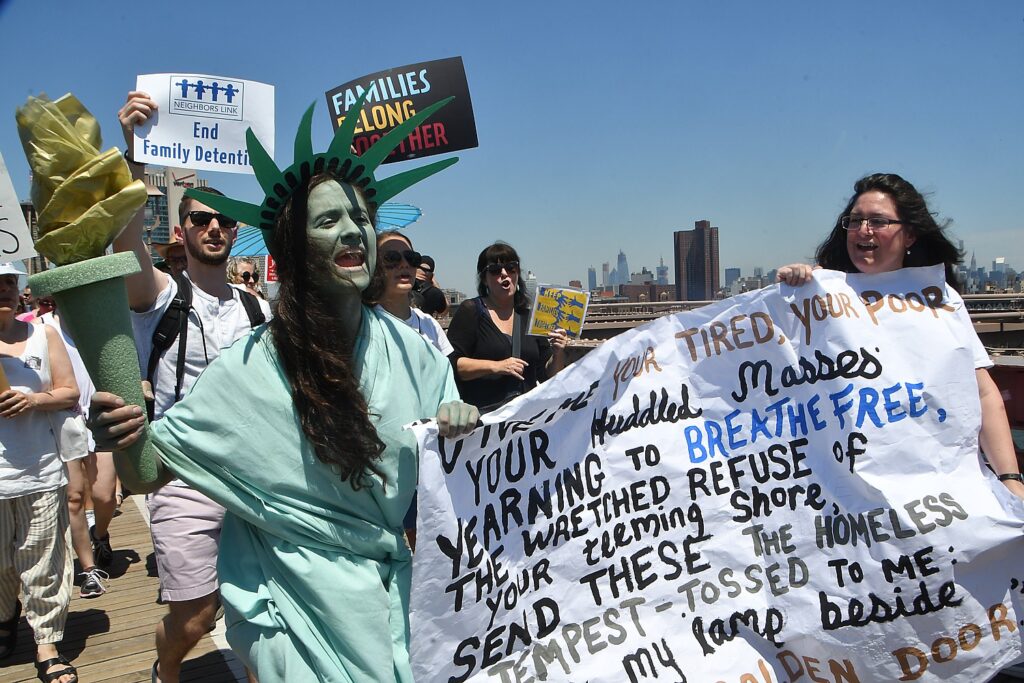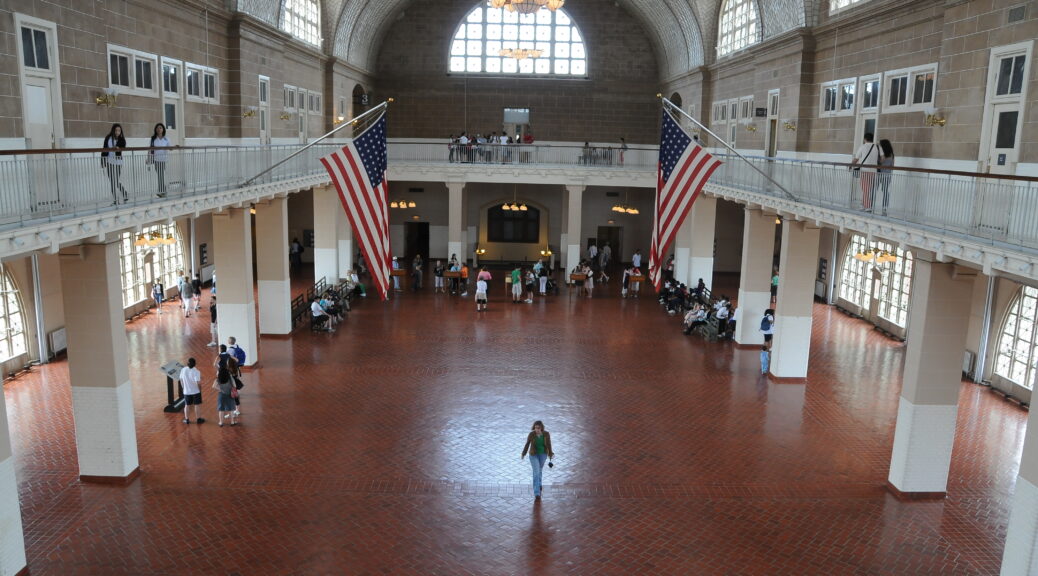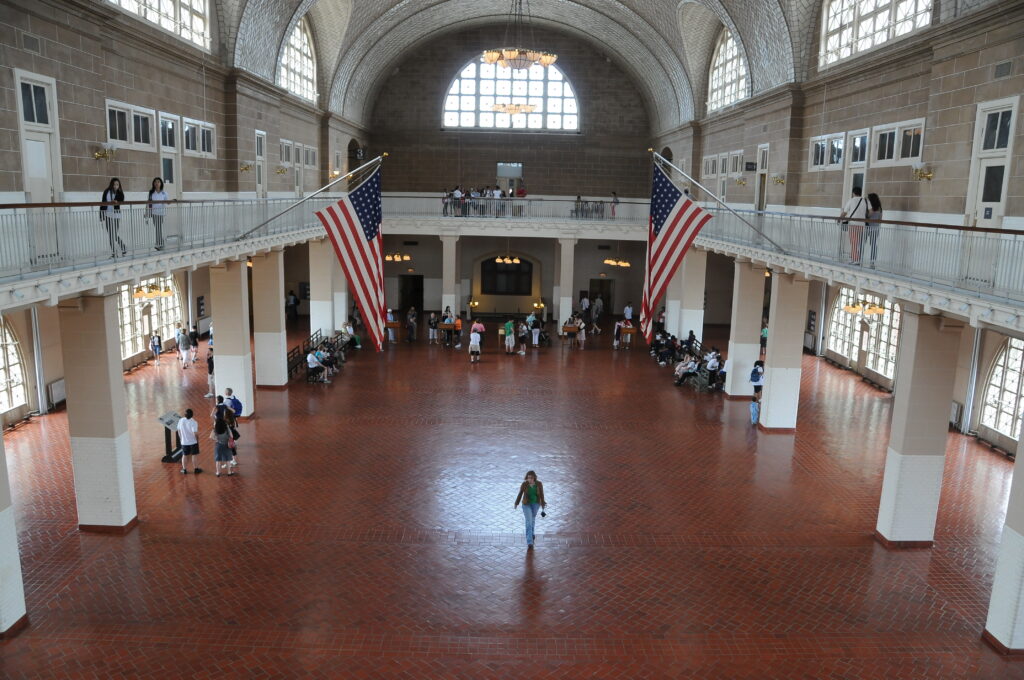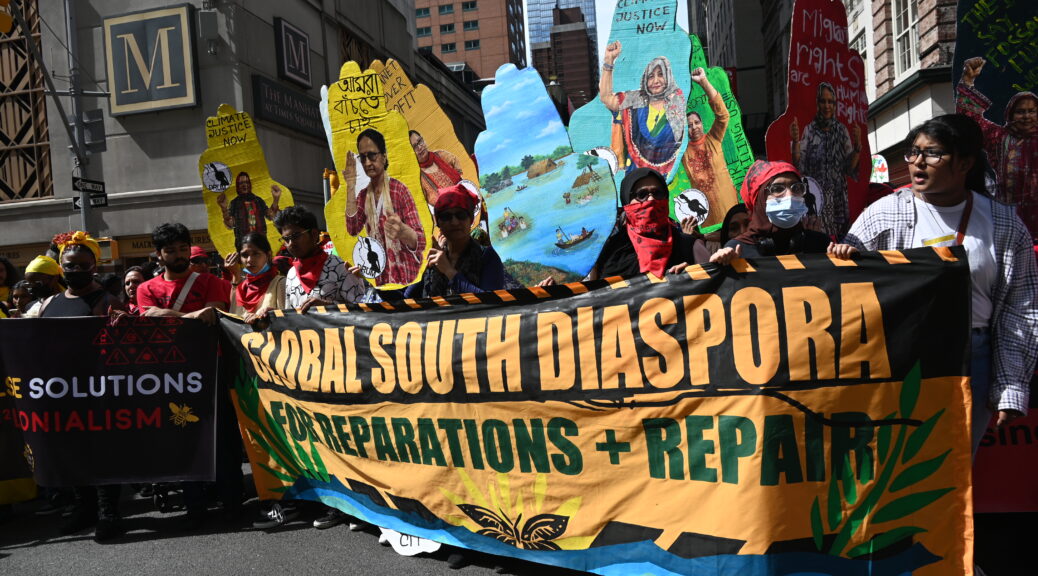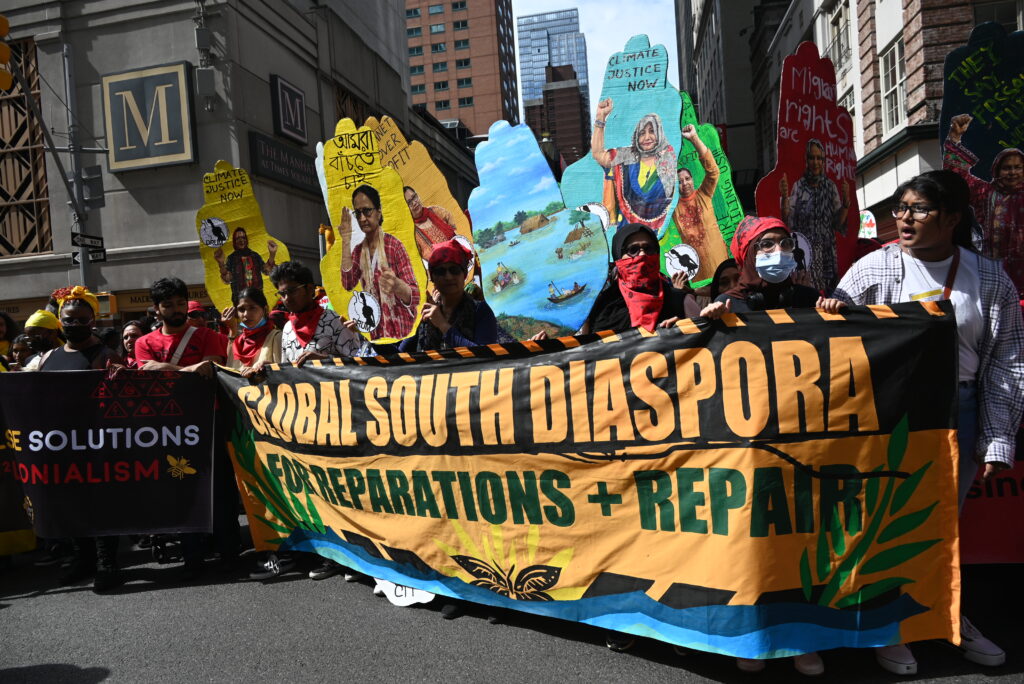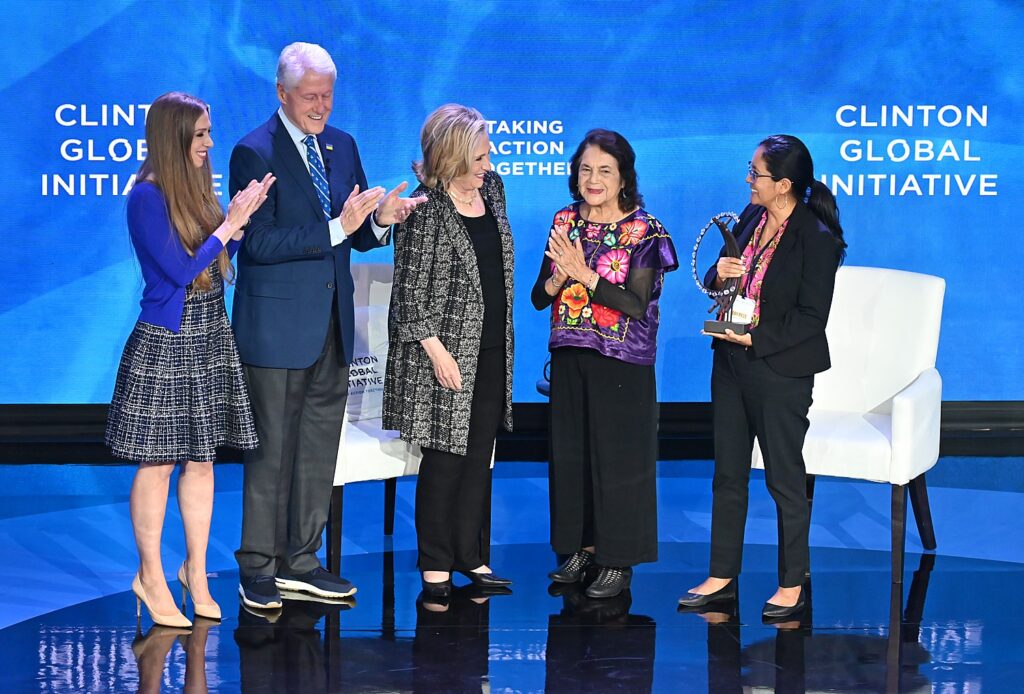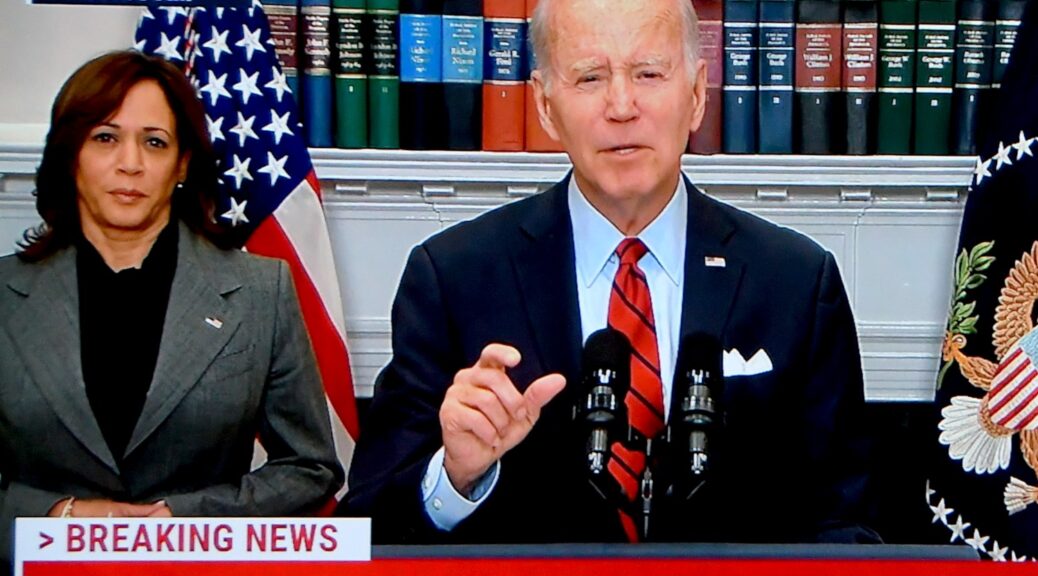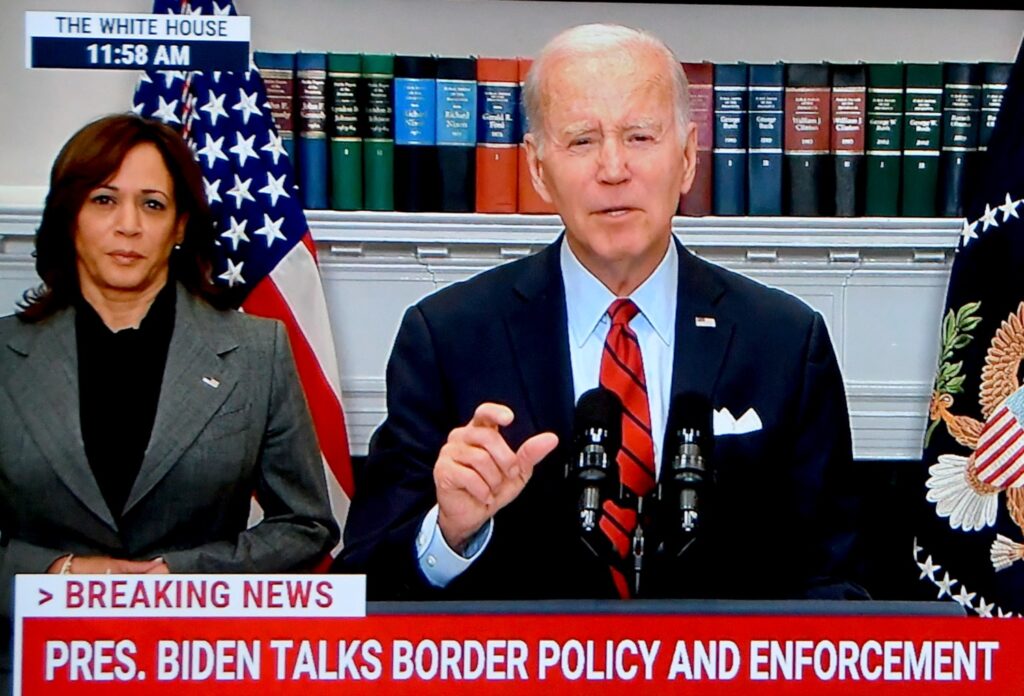
On World Refugee Day, the Biden-Harris Administration reviewed its plans to welcome more than 100,000 refugees to their new U.S. communities in Fiscal Year 2024, the most in three decades, and how the administration is encouraging Americans to consider directly supporting and welcoming a refugee into their community.
Meanwhile, the Congressional Budget Office (CBO) just issued a report that documents the importance immigration plays in the nation’s economic growth and vitality. According to CBO, increased immigration to the US will drive higher economic growth an dlabor supply, grow federal revenues and shrink deficits over the next 10 years. The anticipated surge in immigration is estimated to increase GDP by $9 TRILLION and increase federal revenues by$1.2 trillion. (https://www.axios.com/2024/06/18/immigration-economy-growth-cbo).
It is estimated there are 120 million refugees worldwide – people displaced by conflict and climate crisis, 40 percent of whom are children.
This fact sheet, issued on World Refugee Day, on how the administration is celebrating a rebuilt U.S. Refugee Admissions Program was provided by the White House:
From Day One, the Biden-Harris Administration has prioritized rebuilding and strengthening the U.S. Refugee Admissions Program after its dismantling under the previous administration.
The United States has long been a leader in refugee resettlement, providing a beacon of hope for persecuted people around the world, facilitating international efforts to address record displacement, and demonstrating the generosity and core values of the American people. Today, on World Refugee Day, the Biden-Harris Administration is providing an update on actions taken under the President’s Executive Order 14013 to restore the nation’s refugee resettlement program as a longstanding demonstration of the United States’ promise and welcome.
The U.S. Refugee Admissions Program is rebuilt and stronger than ever. This fiscal year, the United States will resettle more than 100,000 refugees, the most in three decades. The unfortunate reality is there are many more refugees who are still overseas and in need of resettlement. As we look ahead, the Administration encourages Americans to consider directly supporting and welcoming refugees into their community through the Welcome Corps. You can team up with others in your community, apply to sponsor a refugee family today, and welcome them into your community this summer.
Refugee resettlement in the United States represents the opportunity to start anew and pursue a life of safety and dignity without fear of persecution. In turn, refugees and asylees enrich American communities culturally and economically, contributing almost $124 billion to our nation’s economy from 2005 to 2019.
Rebuilding and modernizing resettlement infrastructure
The Biden-Harris Administration inherited a U.S. Refugee Admissions Program that had been systematically weakened by the previous administration. Historically low refugee admissions for four years led to drastic reductions in funding, staffing, and infrastructure across the U.S. Government agencies, international organizations, and nonprofit organizations that manage the program domestically and overseas. Through a whole-of-government effort starting on Day One, this Administration methodically rebuilt and modernized the program:
- Invested in the domestic resettlement network. The ten national refugee resettlement agencies have opened or reopened more than 150 local resettlement offices, bringing the total to more than 350. As part of this effort, the Department of State and the Department of Health and Human Services worked with resettlement partners to design new innovative programs and provide targeted technical assistance. The Department of State, the Department of Housing and Urban Development, the Department of Homeland Security, and HHS also recently issued a fact sheet providing information to landlords and property managers about renting to refugees.
- Hired more than 300 refugee officers. DHS has more than tripled the size of its refugee officer corps. In the first half of 2024 alone, these refugee officers interviewed more than 80,000 refugee applicants overseas. DHS also partnered with the Department of State to expand the international office footprint of the U.S. Citizenship and Immigration Services after many offices were closed under the previous administration.
- Reimagined overseas processing steps. The Department of State, DHS, and the U.S. Digital Service redesigned the overseas process for Afghan refugees by conducting multiple required steps at the same time rather than sequentially. This overhaul allowed processing to occur within weeks or months—a dramatic decrease from historically years-long processing times—without sacrificing national security. The Administration expanded this new approach to other populations, and by late 2023, more than half of all refugees interviewed worldwide went through concurrent processing.
- Digitized processes for greater efficiency. In September 2023, the Department of State, DHS, and USDS fully implemented digital case management, shifting away from a paper-based process. Modern case management systems at both departments now support overseas processing that is more secure, efficient, and cost-effective. The Department of State, DHS, the Social Security Administration, and USDS also launched a new automated process that enables most refugees to receive their Employment Authorization Documents and Social Security Cards within weeks of their arrival, easing their path to self-sufficiency and full integration into their new communities.
- Resolved many of the oldest cases in the program. The Department of State, DHS, and USDS created new case tracking mechanisms to ensure refugees who have been waiting the longest for a decision on their case are prioritized. Since October 2022, more than 32,000 refugees with cases pending for more than five years have been resettled in the United States.
- Launched the Safe Mobility initiative to expand lawful pathways in the Western Hemisphere. In June 2023, the United States announced the Safe Mobility initiative, in partnership with the UN Refugee Agency (UNHCR) and the International Organization for Migration. Safe Mobility offices in Colombia, Costa Rica, Ecuador, and Guatemala provide information and counseling about a range of existing services and local integration assistance available for refugees and migrants, and facilitate access to lawful pathways including refugee resettlement to the United States, Canada, and Spain.
- Established the Resettlement Diplomacy Network. In 2022, the Department of State launched a new high-level multilateral forum, the Resettlement Diplomacy Network, in partnership with Australia, Canada, Italy, New Zealand, Spain, the United Kingdom, and the European Commission. As the network’s chair, the United States is driving an ambitious shared agenda around the global expansion and modernization of resettlement programs.
Building on the generosity of the American people through private sponsorship
Over the past few years, the Americans have extended an extraordinarily generous and welcoming hand to our Afghan allies, Ukrainians displaced by war, and Venezuelans and others fleeing violence and oppression. Following President Biden’s direction in Executive Order 14013, the Administration has created new opportunities for everyday Americans to engage directly in refugee resettlement:
- In January 2023, the Department of State launched the Welcome Corps, a private sponsorship program to empower Americans from all walks of life to be matched with approved refugees overseas and directly support their resettlement and integration as they build new lives in the United States. Now through July 31, the Sponsor Fund will cover fundraising costs for Americans to welcome refugees through the Welcome Corps. This funding is available to help Americans welcome refugees into their community this summer, thanks to private philanthropy efforts led by the Shapiro Foundation in partnership with the Community Sponsorship Hub, WelcomeNST, and GoFundMe.org.
- In December 2023, the Welcome Corps expanded to allow sponsors to identify and welcome refugees they know. Sponsors can identify specific refugees they wish to support, a first in the history of the U.S. Refugee Admissions Program.
- In August 2024, participating U.S. colleges and universities will welcome the first Welcome Corps on Campus cohort of 31 refugee students to continue their higher education in the United States at 17 participating colleges and universities. This World Refugee Day, Secretary of State Antony Blinken and Secretary of Education Miguel Cardona sent a letter to colleges and universities to consider taking steps to support refugee resettlement.
- In April 2024, the Department of State launched the Welcome Corps at Work, a targeted pilot initiative where refugees can be matched with U.S. employers in critical industries such as healthcare, education, and information technology, and receive support from private sponsors in the employer’s community. In September 2022, HHS also launched an Employer Engagement Program to help employers develop workplace-based training programs.
Enhancing screening and vetting
The Administration’s commitment to keeping Americans safe is paramount. Refugees undergo mandatory and rigorous security vetting overseas, including biometric and biographic security checks conducted by our nation’s law enforcement, intelligence, and counterterrorism professionals. The Administration has taken steps to reform and further enhance screening and vetting of refugees, including:
- Repealed the Muslim ban. On his first day in office, President Biden repealed the previous administration’s discriminatory Muslim ban, a stain on our national conscience that was inconsistent with our nation’s foundation of religious freedom and tolerance. The Administration has since taken additional steps to reform legacy nationality-based vetting practices that the previous administration weaponized to implement its Muslim ban and exclude applicants on the basis of their religion or nationality. These reforms have enhanced the program’s rigorous vetting processes and strengthened national security.
- Integrated refugee vetting into the National Vetting Center. Consistent with Executive Order 14013, the Administration has integrated refugee vetting into the National Vetting Center, which has strengthened and simplified the ways that DHS uses intelligence and law enforcement information to inform decisions, while maintaining strong privacy, civil rights, and civil liberties protections.
Expanding access to resettlement
The Biden-Harris Administration has expanded access to the U.S. Refugee Admissions Program for particularly vulnerable individuals facing persecution:
- Opened avenues for resettlement for human rights defenders and the most vulnerable LGBTQI+ refugees. In 2023, the Department of State designated two senior U.S. government human rights officials to identify individuals in need of resettlement who face persecution as a result of their work promoting respect for human rights and those who face persecution on the basis of their real or perceived sexual orientation, gender identity, gender expression, or sex characteristics.
- Strengthened the ability of U.S. Embassies to refer the most vulnerable refugees. U.S. ambassadors are now encouraged to refer to the U.S. Refugee Admissions Program any vulnerable individuals they have identified as facing persecution and are in need of resettlement, an option previously reserved for exceptional circumstances.
- Expanded NGO referrals for highly vulnerable cases. As directed in Executive Order 14013, the Department of State partnered with a new consortium of non-governmental organizations to identify and refer highly vulnerable refugees to the U.S. Refugee Admissions Program who are in need of resettlement but are unlikely to be identified through traditional resettlement mechanisms, including LGBTQI+ refugees and certain ethnic and religious minorities.
- Facilitated protection and expanded access to the refugee program for Afghans. In August 2021, the Administration announced a special refugee designation for certain Afghans and their eligible family members, as part of the Administration’s commitment to welcoming those who served alongside us during the 20-year war in Afghanistan. The Administration is also allowing, in certain cases, U.S. government and military officials to refer Afghans to the U.S. Refugee Admissions Program who worked with the United States in Afghanistan.
Led the most significant increase of operations in the Americas in the history of the program. As forced displacement in the Western Hemisphere reaches historic highs, the Administration has dramatically expanded operations in the region, in particular through the Safe Mobility initiative. The United States has welcomed 13,000 refugees from the region this year, by far the most in the program’s history. Since January 2021, the UN Refugee Agency, UNHCR, has referred more than twice as many refugees to the U.S. Refugee Admissions Program as in the previous three decades combined.

